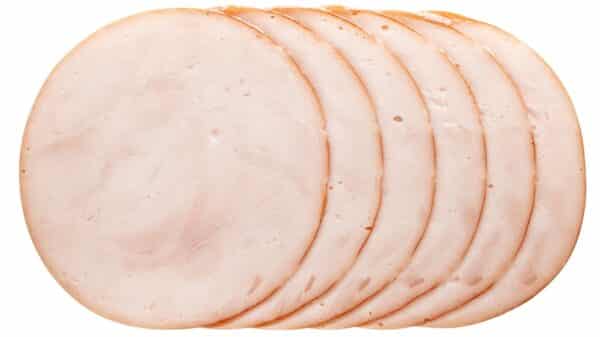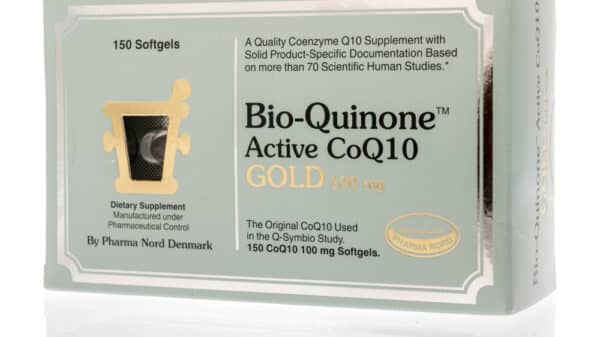The phrase “you are what you eat” holds more truth than we may realize, but let’s dig deeper: you are, in fact, what you *digest*. This brings us to an essential question: how fundamental are digestive enzymes to our gut health, nutrient absorption, and overall well-being?
You might be surprised to learn that, until recently, the complex workings of our digestive system were largely a mystery. Nowadays, though, research points to a worrying trend: many health issues are creeping up on us, often tied to nutrient malabsorption caused by a shortage of these vital digestive enzymes.
So, why are these enzymes so important in preventing illness? In simple terms, they break down the larger food molecules into smaller, absorbable components that our bodies can utilize efficiently. If you’re wondering whether digestive enzymes genuinely make a difference, what makes them crucial, and which ones are the most effective, you’re not alone. Let’s explore the key information you need to know.
To start with, digestive enzymes are essential proteins that assist in breaking down macronutrients—carbohydrates, fats, and proteins—into simpler forms that your body can readily absorb. Particularly for older adults and individuals dealing with specific health challenges, the absence of necessary digestive enzymes can lead to significant issues.
Digestive enzymes generally fall into three categories:
1. Proteolytic Enzymes: These enzymes are vital for breaking down proteins.
2. Lipases: These help digest fats.
3. Amylases: These are responsible for breaking down carbohydrates.
Understanding how these enzymes work can clarify just how crucial they are for a healthy gut. Let’s take a look at a simplified six-step process of digestion, starting right from when you take that first bite.
1. Salivary amylase is released in your mouth, initiating the breakdown of food even before it reaches your stomach.
2. Once in your stomach, parietal cells kick in, releasing acids and enzymes like pepsin and gastric amylase. This helps to transform the food into chyme—a semi-fluid mass that is easier to digest.
3. Stomach acid neutralizes salivary amylase, allowing gastric amylase to take charge.
4. After about an hour, the chyme moves into the duodenum. The presence of acidity there triggers the release of a hormone called secretin.
5. This hormone signals the pancreas to release a cocktail of digestive aids: hormones, bicarbonates, bile, and several crucial pancreatic enzymes, including lipase and trypsin.
6. Bicarbonate changes the chyme from acidic to alkaline, which not only enhances the activity of enzymes but kills off harmful bacteria that can wreak havoc on your digestive health.
For most people with sufficient digestive enzymes, this process works beautifully. But for those experiencing digestive enzyme insufficiency, supplementation can be a game-changer.
So, what are the best digestive enzymes, and why does each one matter? Let’s break it down further:
1. Amylase: Primarily found in saliva, it kicks off starch digestion right in your mouth.
2. Alpha-galactosidase: This enzyme helps break down those stubborn, gas-causing foods like beans and cruciferous vegetables.
3. Cellulase: It plays a key role in digesting cellulose, a fiber found in many plants.
4. Glucoamylase: This enzyme breaks down starches to form simple carbohydrates, enhancing energy absorption.
5. Invertase: It helps convert sucrose (table sugar) into glucose and fructose, making it easier for your body to use.
6. Lactase: For anyone who enjoys dairy but faces lactose intolerance, lactase is crucial for breaking down lactose.
7. Lipase: Produced by the pancreas, it’s essential for digesting fats effectively.
8. Peptidase: This enzyme is responsible for breaking down protein chains into the amino acids your body needs to function optimally.
9. Phytase: It aids in digesting phytic acid found in seeds and grains, unlocking vital nutrients.
10. Protease: Responsible for breaking down proteins into amino acids, essential for muscle repair and growth.
11. Maltase: It specifically breaks down maltose into individual glucose units, making energy absorption straightforward.
Understanding these enzymes offers a glimpse into the intricate workings of our digestive system and emphasizes the critical role they play in maintaining health. If you recognize the signs of digestive discomfort or nutrient deficiencies in yourself or your loved ones, consider consulting a healthcare professional about the potential need for enzyme supplementation. Taking charge of your digestive health can make a world of difference in how you feel day to day. Don’t wait for discomfort to give you a wake-up call—empower yourself with knowledge and take proactive steps toward better digestion today.Maltase and sucrase are key enzymes produced in the small intestine that play vital roles in carbohydrate digestion. Maltase specifically breaks down maltose, a sugar found in foods like grains, into simpler sugars that your body can use for energy. Sucrase, on the other hand, transforms sucrose—commonly known as table sugar—into glucose and fructose. This is especially crucial because, without adequate sucrase, you might experience sucrose intolerance, leading to uncomfortable gastrointestinal symptoms such as bloating and gas after consuming sugar-laden foods.
When it comes to benefits, digestive enzymes like maltase and sucrase can do wonders for your overall health. Even if you’re eating a well-rounded diet, your body might struggle to extract the essential nutrients you need. Adding digestive enzymes can facilitate nutrient absorption by ensuring your body effectively breaks down food into readily usable components. This can mitigate nutritional deficiencies, which is crucial if you often feel drained or low on energy. Well-functioning digestion is also linked to better immune support, helping you fend off common illnesses and keeping you feeling your best.
Taking care of your digestive health is another significant advantage. Digestive enzymes help maintain a smooth-running gastrointestinal system and can even assist in managing conditions like leaky gut, where particles from your intestines increase inflammation due to their escape into the bloodstream. By supplementing with specific enzymes, you can help optimize digestion, reduce irritation, and keep your gut lining protected.
Gas and bloating after meals can be so frustrating, especially when they hinder your day. Enzymes like alpha-galactosidase and lactase are known for their ability to break down foods that often cause discomfort, such as beans, fiber-rich vegetables, and dairy. If you find yourself uncomfortable or dealing with excess gas after meals, turning to these enzymes can provide relief.
For those battling acid reflux or GERD, digestive enzymes may offer some hope. They can accelerate how quickly your stomach empties, potentially reducing the likelihood of acid splashing back up into your esophagus. While research on this is still developing, integrating digestive enzymes into your routine—with attention to diet and lifestyle changes—could lead to noticeable improvements.
But who really needs digestive enzymes? If you’re often bloated, gassy, or feeling uncomfortable after meals, it might be worth exploring these supplements. Take note if you frequently struggle with symptoms like acid reflux, unexplained fatigue, or brain fog. These could be signs that your body needs a little extra help breaking down food.
Certain health conditions can also make you more likely to benefit from digestive enzymes. If you’re dealing with digestive diseases—be it IBS, Crohn’s disease, or even just chronic constipation—supplementing with digestive enzymes can lighten the load on your digestive system, easing discomfort associated with these conditions.
Moreover, as we age, our bodies often produce fewer digestive enzymes, leading to various discomforts, including acid reflux. Low stomach acidity can also complicate nutrient absorption, creating a cycle of nutritional insufficiency. If you struggle with this, digestive enzyme supplements could provide the balance your digestive system needs.
People with liver disease or other related gastrointestinal issues may also find relief through digestive enzymes. Many experience enzyme insufficiencies alongside such conditions, and addressing these could improve overall health and wellness.
Whether you’re navigating everyday digestive troubles or managing a complex health condition, understanding the role of digestive enzymes can empower you to take control of your health. The right enzyme support could mean less discomfort and a lot more enjoyment in the meals you love.The connection between low digestive enzymes and seemingly unrelated illnesses can be surprising. Many people may not realize that issues like chronic bloating, diarrhea, or even fatigue could stem from inadequate digestive enzyme production. These enzymes are crucial for breaking down and absorbing nutrients from our food. When our bodies can’t produce enough, a range of uncomfortable symptoms can emerge.
Some key indicators that you might be facing enzymatic insufficiency include:
– Stool Changes: If you’ve noticed that your stool appears pale, floats, or looks greasy, these could be signs that your body isn’t digesting fats properly.
– Gastrointestinal Complaints: Experiencing stomach distension, frequent diarrhea—especially within an hour after eating—along with symptoms like flatulence and indigestion can also signal that something is off in your digestive health.
One of the most common conditions related to this is **pancreatic insufficiency.** Essentially, this means that the pancreas isn’t producing enough of the enzymes required to digest food. This issue often affects individuals dealing with pancreatic cancer, chronic pancreatitis, or those who have undergone certain surgeries. Thankfully, there are prescription pancreatic enzyme products available, sometimes referred to as replacement therapy, which can help improve function and promote healing during recovery.
When it comes to naturally supporting our digestive systems, **raw fruits and vegetables** are rich in enzymes that aid in their own digestion. If you’re planning your grocery list, consider adding more foods like:
– Pineapple
– Papaya
– Kiwi
– Kefir and yogurt
– Mango
– Fermented products like miso, soy sauce, sauerkraut, and kimchi
– Avocado
– Raw nuts and seeds
These foods are not just delicious but can truly bolster your digestive health.
In addition to food sources, many people turn to **digestive enzyme supplements** for extra support. These supplements often come from three main categories:
1. Fruit-Sourced: Bromelain from pineapple and papain from papaya are two powerful enzymes that help break down proteins.
2. Animal-Sourced: Products like pancreatin that are derived from pigs or cows.
3. Plant-Sourced: Enzymes from probiotics, yeast, or fungi.
For those who struggle with specific digestive issues, choosing a supplement that addresses a range of digestive needs can be incredibly beneficial. Look for full-spectrum blends that include enzymes such as:
– Alpha-galactosidase (think Beano® for carbs)
– Amylase (found in saliva)
– Lactase (for those who struggle with dairy)
– Protease (which aids in protein digestion)
When purchasing, here are some pointers based on your specific situation:
– If you’re dealing with gallbladder issues, consider a supplement richer in lipase and bile salts.
– If lactose is your nemesis, look for products containing lactase.
– For autoimmune conditions, protease-rich supplements might offer relief.
– Blends with natural herbs like peppermint and ginger can also enhance digestion.
As with any supplement, it’s crucial to be aware of potential **risks and side effects.** Although digestive enzymes are generally well-tolerated, you should consult with your healthcare provider if you have a history of liver or gallbladder disease. Some possible side effects may include nausea, diarrhea, or gas. Overdoing it on doses can lead to more pronounced issues, so be sure to follow dosage recommendations closely.
Image Source: Drazen Zigic / Shutterstock
































